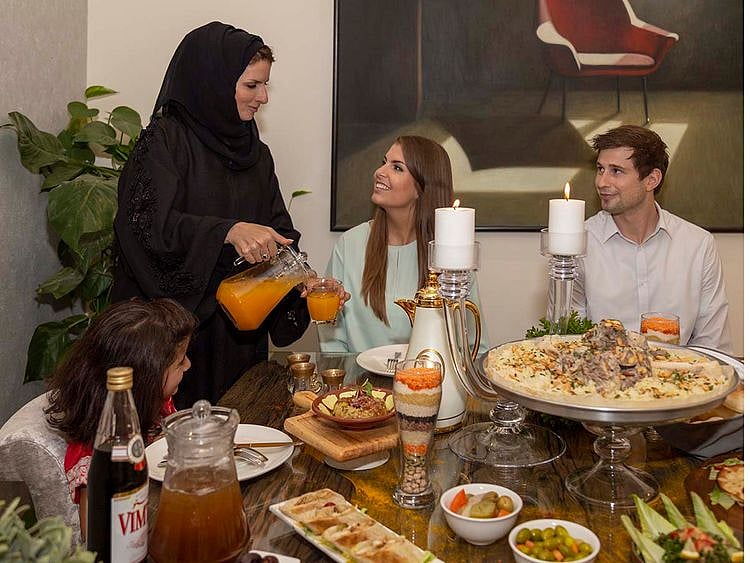Blind iftar anyone? Meet new people and enjoy iftar with this cool Ramadan concept in Dubai
Dubai residential community hosts 'blind iftars' for people to get to know each other

Blind iftar anyone?
Have you heard about a "blind iftar"? And would you sit through one?
If the answer to the second question is yes, head down to Sustainable City where a host of friendly residents are preparing to treat you to an "iftar do" in their homes.
The idea is to meet new people and get to know them and their culture.
What is blind iftar all about?
It is an initiative started by residents of the Sustainable City as part of their effort towards social sustainability and to help residents engage with each other.
“The whole idea is to help residents experience new cultures as well,” said Hadeel Ahmad, communications director of Sustainable City.
Also Read
Iftar in Dubai: 131 places to have iftars out in Ramadan 2019Police issue Ramadan warning for motorists How To: Learn 10 Arabic phrases this Ramadan“Some of our residents are new to the UAE and they are experiencing Ramadan for the first time. We want them to understand what Ramadan is about and have a taste of the month in a social manner. Of course we also want residents to meet each other, make new friends, meet their neighbours, something rare in a lot of communities in the UAE,” she added.
Since the initiative started a year ago, people living in the City, are taking the opportunity to meet residents from other clusters and areas of development. Sustainable City comprises of 500 villas and 92 apartments. The villas are 98 per cent occupied while the apartments are all filled up.
Who meets whom?
Ahmad said: “We have an easy registration system. Any resident who is interested in hosting a family in their house and invite them to their iftar table registers in the community as a host. If someone wants to understand the Islamic culture, about Ramadan and what iftar is all about, they register as a guest.
"We then match up families according to the size of the guests, the cluster they live in, and their cultural background. Ideally hosts give the number of guests they would like to invite to their house. We fix them up accordingly. We also try and get people from different clusters to meet and catch up for iftar.
Playing the host
For Jordanian expat Sireen Khalifeh this initiative takes the concept of Ramadan to a whole new level. “I suggested this concept as I have met so many foreign nationals who come to the UAE and they have no idea whatsoever as to what Ramadan is about or why people keep fast during this month. Many times they have a sad picture about Ramadan that is a month where people do not have fun, cannot have coffee in a mall. So I thought about how to change this concept and make people understand about the month.”
“I hosted a Swedish family last year. They are my neighbours and we had never met before or socialised until that day. The family of four baked a Vanilla cake for us and we all sat down and enjoyed a meal together.”
“When you share food, you share love and the bond grows automatically. Sharing a table gives us time to talk to each other. The Swedish family had so many questions about Islam and Ramadan. They wanted to know why we fast. And I explained that fasting helped us value life, people, food and to not waste. And iftar is the best way of bringing people closer.”
“It was fun, informal and we had a healthy, informative exchange. I cooked traditional Jordanian food including mughrabiya (a chicken stew with onions and chick peas) and Freeke (a cereal food made from green durum wheat that is roasted and rubbed to create its flavour. It is an ancient Levantine and North African cuisine). These dishes you generally don’t find in restaurants.
Being the guest
Australian expat Joe Sinclair, too enjoyed being a guest at a community member’s house last year. She is looking forward to playing host and guest all over again this year. “We have been living in the Sustainable City for four long years. It was a great experience meeting the new family. I learnt a lot about their culture and the significance of baking a cake.”
“They had prepared Arabic food. It was a buffet and we all sat around their table and ate together. It was really nice. Sustainability is all about socialising, and the blind iftar is all about socialising and being sustainable.”
Sign up for the Daily Briefing
Get the latest news and updates straight to your inbox
Network Links
GN StoreDownload our app
© Al Nisr Publishing LLC 2025. All rights reserved.